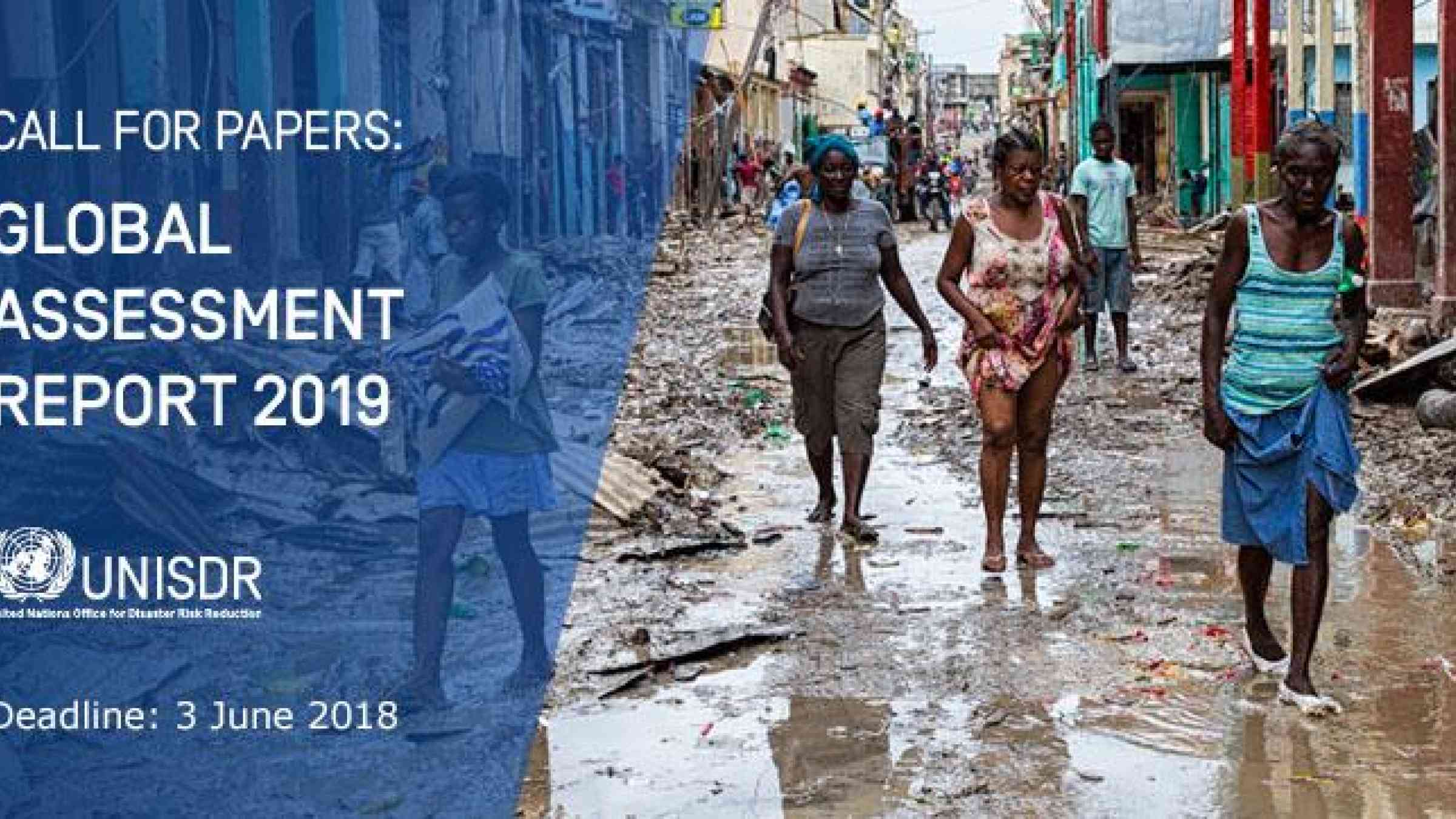Please help us improve PreventionWeb by taking this brief survey. Your input will allow us to better serve the needs of the DRR community.
Call for papers: Global Assessment Report on Disaster Risk Reduction 2019

The UN Global Assessment Report on Disaster Risk Reduction (GAR) is the flagship report of the United Nations on worldwide efforts to reduce disaster risk, which is published biennially by the UN Office for Disaster Risk Reduction (UNISDR). The GAR is a vehicle to show-case Member States progress towards the implementation of the Sendai Framework for disaster risk reduction as well as disaster-related targets of the SDGs, to assess global risk trends, and to present innovative research and knowledge to enhance understanding of disaster risk in all its dimensions, thereby supporting risk reduction efforts.
The report contributes to the biennial Global Platform for Disaster Risk Reduction, and the High Level Political Forum on Sustainable Development. In addition, papers which are selected for contribution to GAR19 and successfully pass peer-review will be made available online as official annex to GAR19 by May 2019.
Please find structure and themes of GAR19 in the Call for Papers document. Abstracts will have to be submitted by email to UNISDR by 3 June 2018 following the below requirements and using the submission template.
Timelines/Requirements
- Deadline for submission of abstracts for GAR19 papers is the 03 June 2018.
- Abstracts must be 300 words or less.
- Abstracts must be submitted in English to katsanakis@un.org and chiara.menchise-intern@un.org$
- Abstracts must be submitted using the submission template
- Authors are encouraged to read the GAR19 concept note in preparation of their abstract
- Selection will be conducted by UNISDR, whereupon successful authors will be notified by 15 June, 2018 to develop full GAR19 papers for submission by 15 August, 2018.
- All papers having successfully passed peer-review will be made available online as an annex to GAR19 by May 2019.
Explore further
Please note: Content is displayed as last posted by a PreventionWeb community member or editor. The views expressed therein are not necessarily those of UNDRR, PreventionWeb, or its sponsors. See our terms of use
Is this page useful?
Yes No Report an issue on this pageThank you. If you have 2 minutes, we would benefit from additional feedback (link opens in a new window).